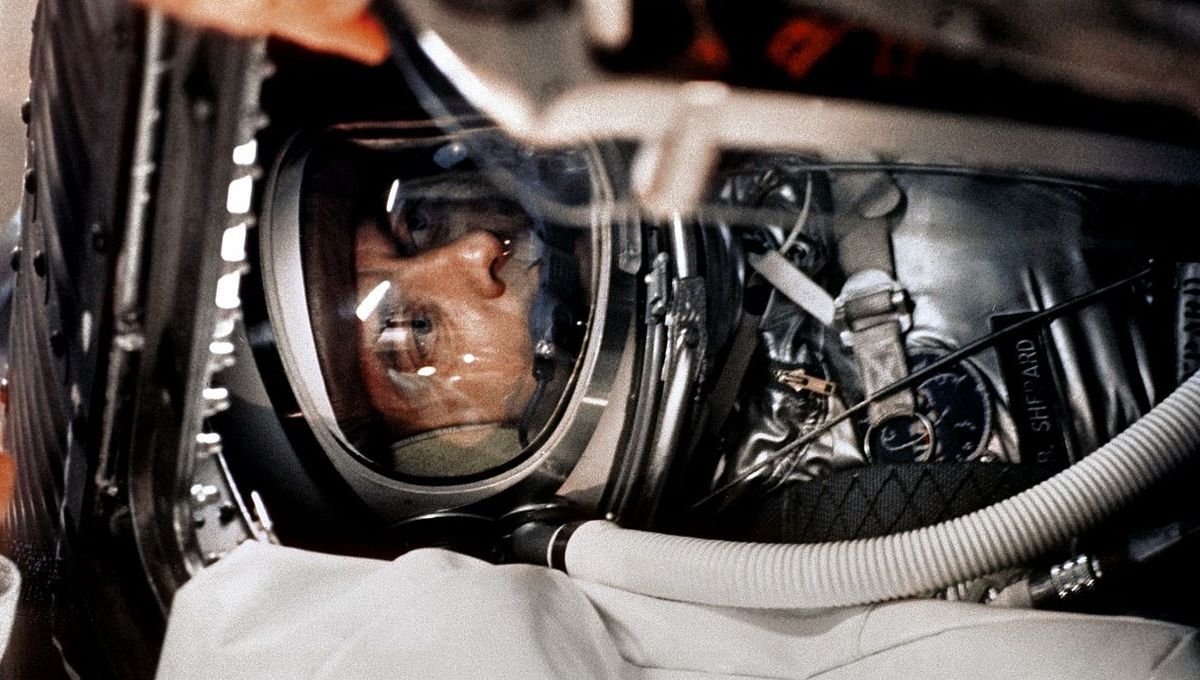
The year 1961 was the beginning of human exploration of space. On April 12, Soviet cosmonaut Yuri Gagarin became the first person in space and the first one to orbit the Earth. Weeks later, on May 5, Alan Shepard will become the first American in space. NASA was playing catch-up to the USSR, geopolitics and engineering ingenuity interlaced in a dangerous mix. The goal was to be the first and the best, the human element was secondary – but not to the people outside of the agencies. One such person was Brenda Kemmerer of Cherryville, Pennsylvania.
On February 1, 1961, she wrote to NASA to ask a simple question, a question that people have asked many times since the first astronauts: How do they go to the toilet? Some might consider it silly or even a low-brow question. We are talking about sending a human being beyond our ancestral home in the cosmos, using the most advanced technology to fly above the sky. We can’t possibly talk about the physical needs of urination and defecation.
But Brenda’s question received a reply from Dr Freeman H. Quimby, of the Office of Life Science Programs at NASA. As reported in a paper called Forgotten hardware: how to urinate in a spacesuit by Hunter Hollins from the National Air and Space Museum, Quimby’s reply was simple: “The first space man is not expected to have ‘to go’.” The proverbial famous last words, as Alan Shepard would find out in a matter of months.
Let’s not be too harsh on Quimby’s viewpoint. On paper, Shepard’s flight might not have been one that needed to have human waste taken into account. The flight was suborbital, meaning that Shepard would not go around the Earth. It took 15 minutes and 28 seconds, and reached an altitude of 187.4 kilometers (116.5 miles). You can hold off peeing for 15 minutes, if you have to.
On that pivotal day, Shepard ascended the gantry at 5:15 am local time and was in the capsule at 5:20. At that point, he’d been in his spacesuit for about two hours. Launch was expected at 7:25, but delay after delay accumulated, and he was there for over four hours. So the ideal plan had Shepard in the suit from four hours before launch to one after, but reality had him pushing seven hours without even having left the atmosphere. But like a great chaotician once pointed out, when you’ve got to go, you’ve got to go.
So Shepard had to ask ground control for permission to pee in his suit. As Shepard himself wrote in his book about the space race, medical sensors had to be switched off to avoid short-circuiting them. Ultimately, it was a risk to pee in the suit. Fortunately, nothing bad happened apart from being uncomfortable. Urine pooled on his lower back and was absorbed by his suit undergarments. The early Space Age was not glamorous, but sacrifices are necessary for bold new adventures.
Brenda was right in asking the question. NASA had considered various options already in the days before Shepard’s launch, but they were not practical for the setup of the Mercury missions. In the second Mercury flight in July of that year, Gus Grissom’s suit was equipped with a Urinary Collection Device.
Space exploration is often viewed as an idealized sci-fi version of the real thing. It’s not all chrome and digital displays. The human element and our very human needs have to be taken into account if we want to be a space-faring civilization.
Source Link: The First American To Fly Into Space Had To Pee In His Space Suit